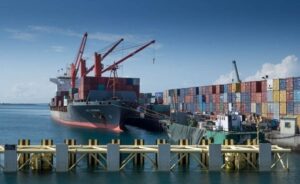The Tanzanian government has handed control of its seaport to private investors, ceding the second terminal to Adani, India’s largest port operator.
Adani has been granted a 30-year concession to manage Dar es Salaam’s Container Terminal 2, which includes four berths and has an annual cargo handling capacity of 1 million Twenty-Foot Equivalent Units (TEUs).
With this development, foreign investors now control eight out of twelve berths at the facility.
This follows a similar move last year when DP World signed a 30-year concession agreement with the Tanzania Ports Authority (TPA) to operate and modernise part of the port. DP World’s agreement covers four berths, despite opposition from Tanzanian politicians.
In 2023, Container Terminal 2, with its four berths, handled 0.82 million TEUs of containers, accounting for 83 percent of Tanzania’s total container volumes.
East African nations are increasingly transferring operational control of key maritime assets to the private sector to enhance efficiency and competitiveness in the global maritime industry.
Kenya is also considering privatisation initiatives for multiple berths at the Mombasa and Lamu ports. Last year, the Kenya Port Authority (KPA) invited prospective stakeholders to express their interest in leasing port infrastructure through public-private partnerships.
Analysts suggest that both Tanzania and Kenya aim to improve the operational efficiency of their maritime assets through private sector engagement.
Earlier this year, Dar es Salaam Port, Kenya’s primary regional competitor, experienced severe congestion, resulting in vessel clearance times of up to seven days. This bottleneck increased shipping costs and led to market shortages, prompting Great Lakes countries to redirect more traffic to Mombasa.
Source: allafrica.com














